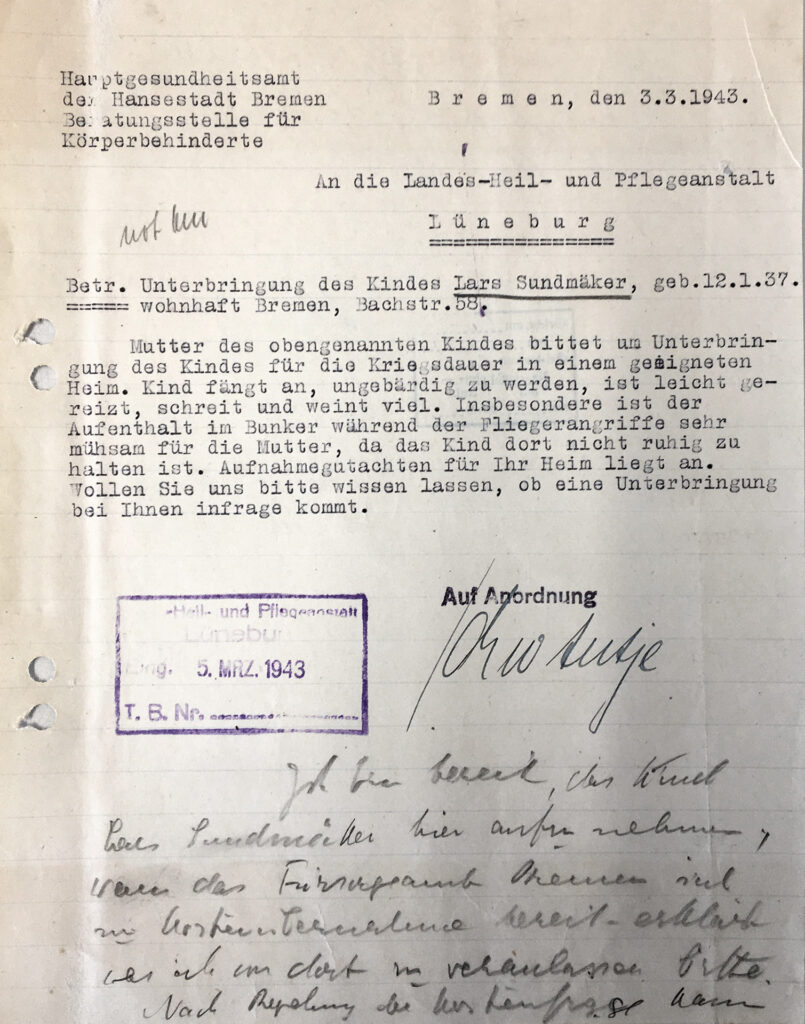
Letter from the Bremen Public Health Office to the Lüneburg Institution dated March 3, 1943.
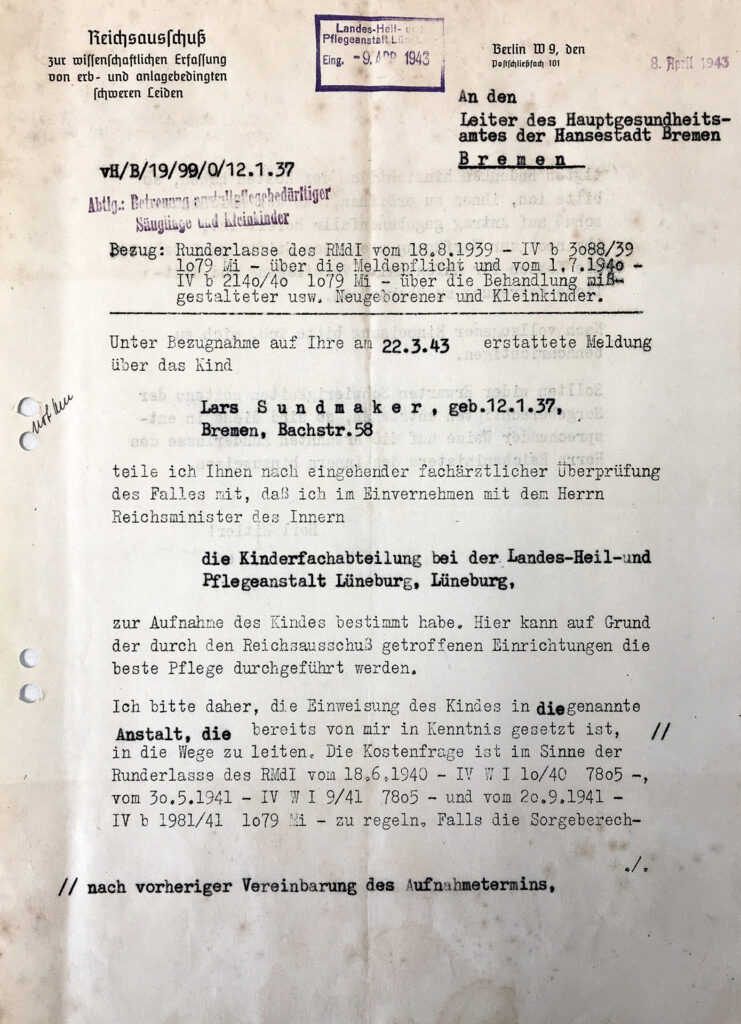
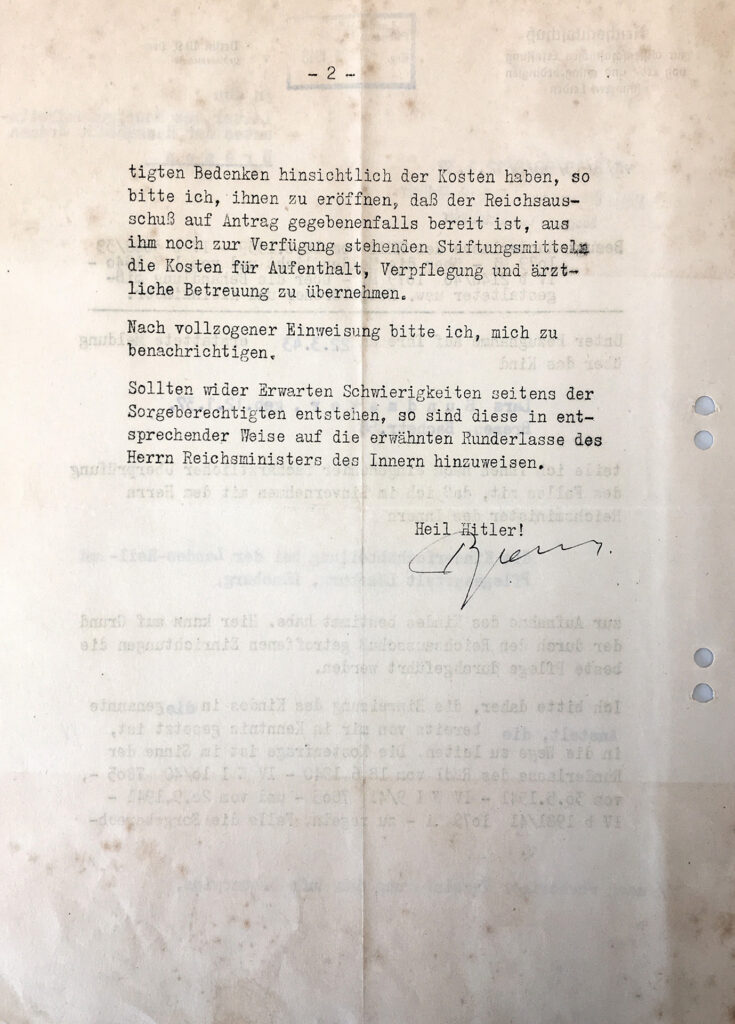
Committal order issued by the »Reich Committee« on April 8, 1943.
NLA Hanover Hann. 155 Lüneburg Acc. 56/83 No. 405.
LARS SUNDMÄKER (1937 – 1945)
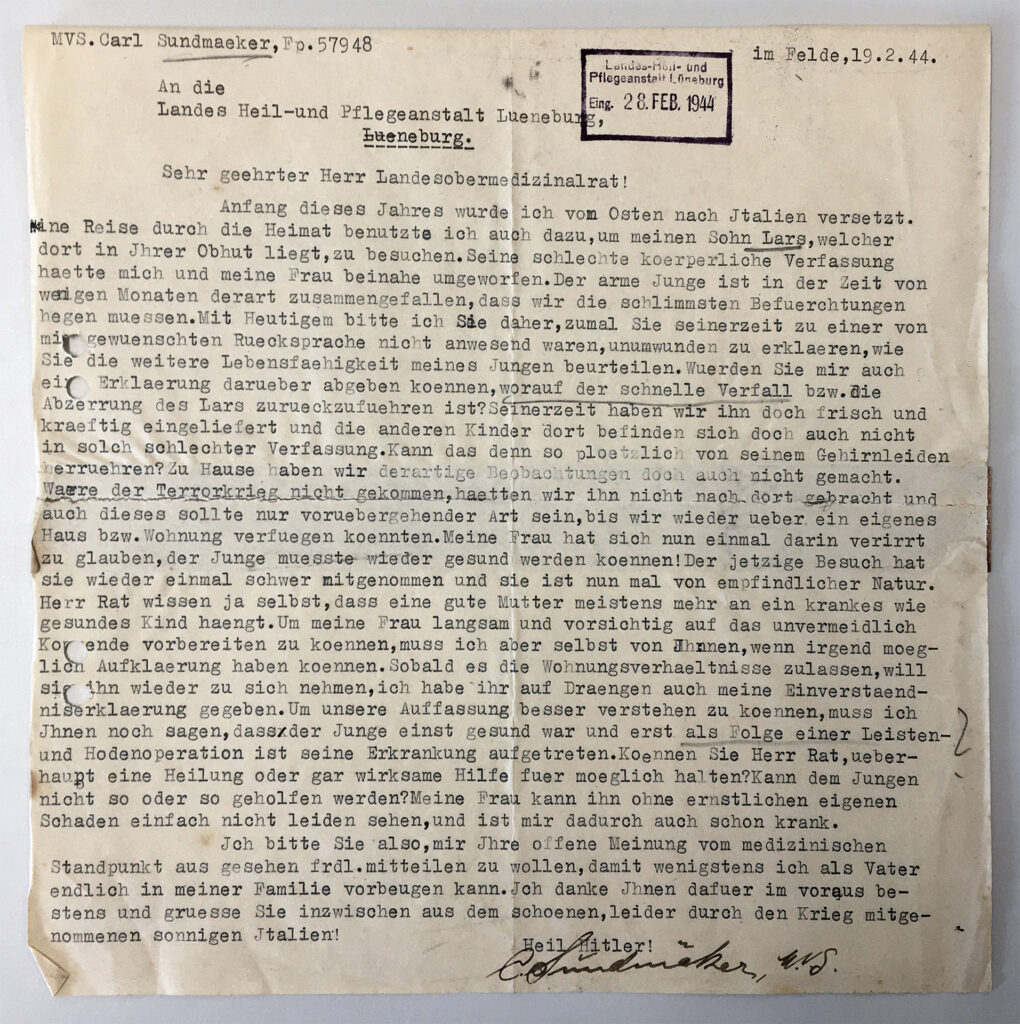
Field post letter from Carl Sundmäker to the Lüneburg Institution and Nursing Home dated February 19, 1944.

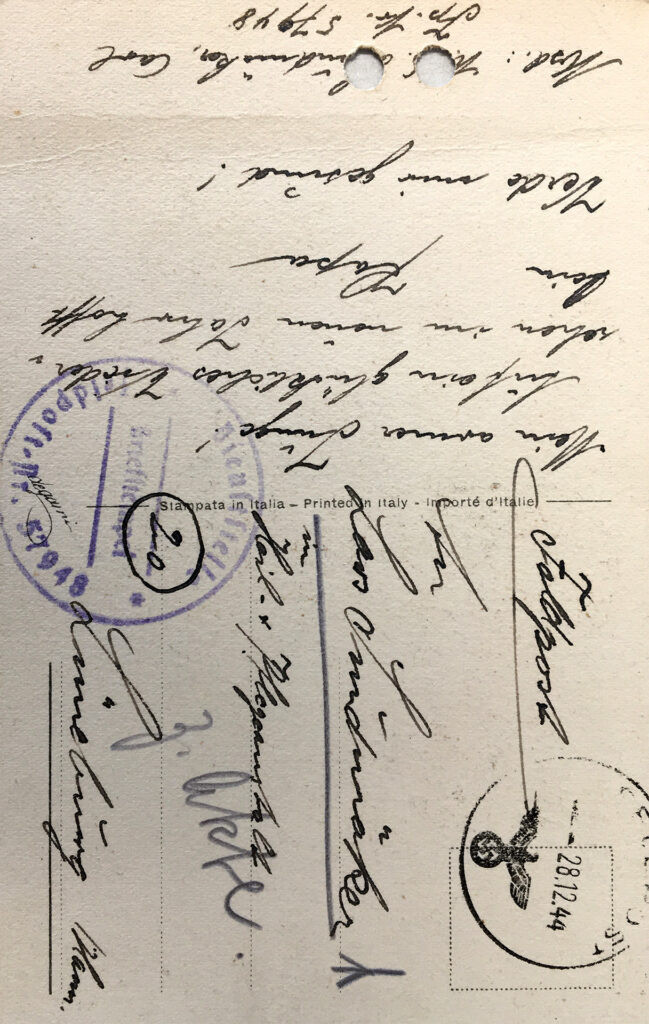
Field postcard from Carl Sundmäker (No. 57948) to his son Lars Sundmäker dated December 28, 1944, front and back.
NLA Hanover Hann. 155 Lüneburg Acc. 56/83. No. 405.
The parents were then required to pay the care costs. Since they did not have the money to do so, Lars was taken home from the »children’s ward« in Lüneburg by his mother on July 12, 1943, »against medical advice.«
Then the situation changed. Unexpectedly, their home was occupied by bomb victims from Hamburg, and the family was moved to emergency accommodation. This was too much for the mother to bear. After the Bremen social welfare office agreed to contribute to the care costs, she asked Medical Director Max Bräuner to readmit her son to Lüneburg. The stay was only supposed to be temporary, until a new home had been found.
On August 3, 1943, Lars was admitted to the »children’s ward« for a second time. In early 1944, he received a visit from his father, who had been granted a short leave of absence before his transfer to Italy. The father was horrified by his son’s condition. He told Max Bräuner that his son would be brought home as soon as possible. But no new home could be found, and the mother was repeatedly relocated.
His father wrote letters and postcards, inquiring about his son. The last postcard reached Lüneburg after Lars had already died. He died on January 3, 1945.